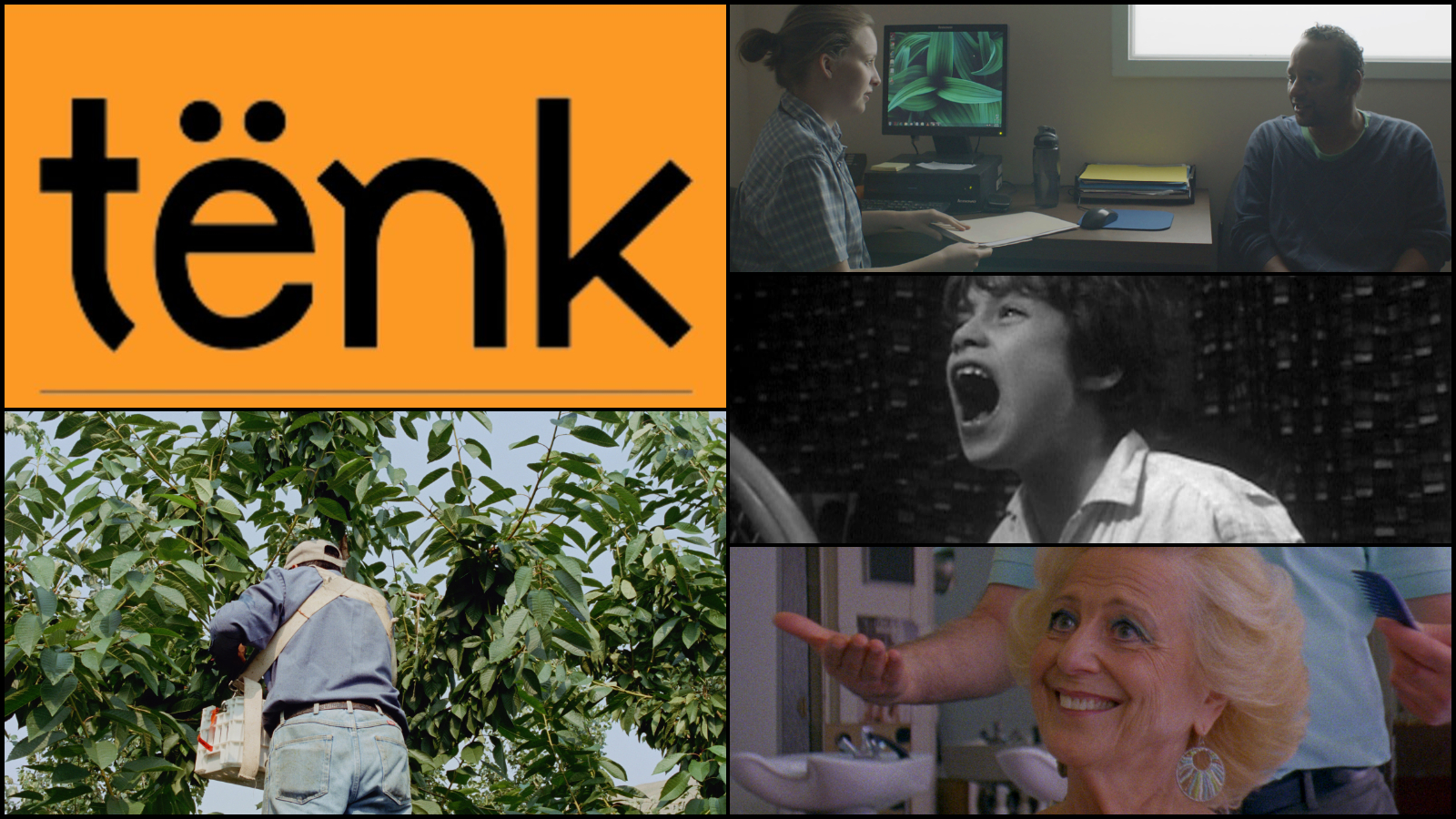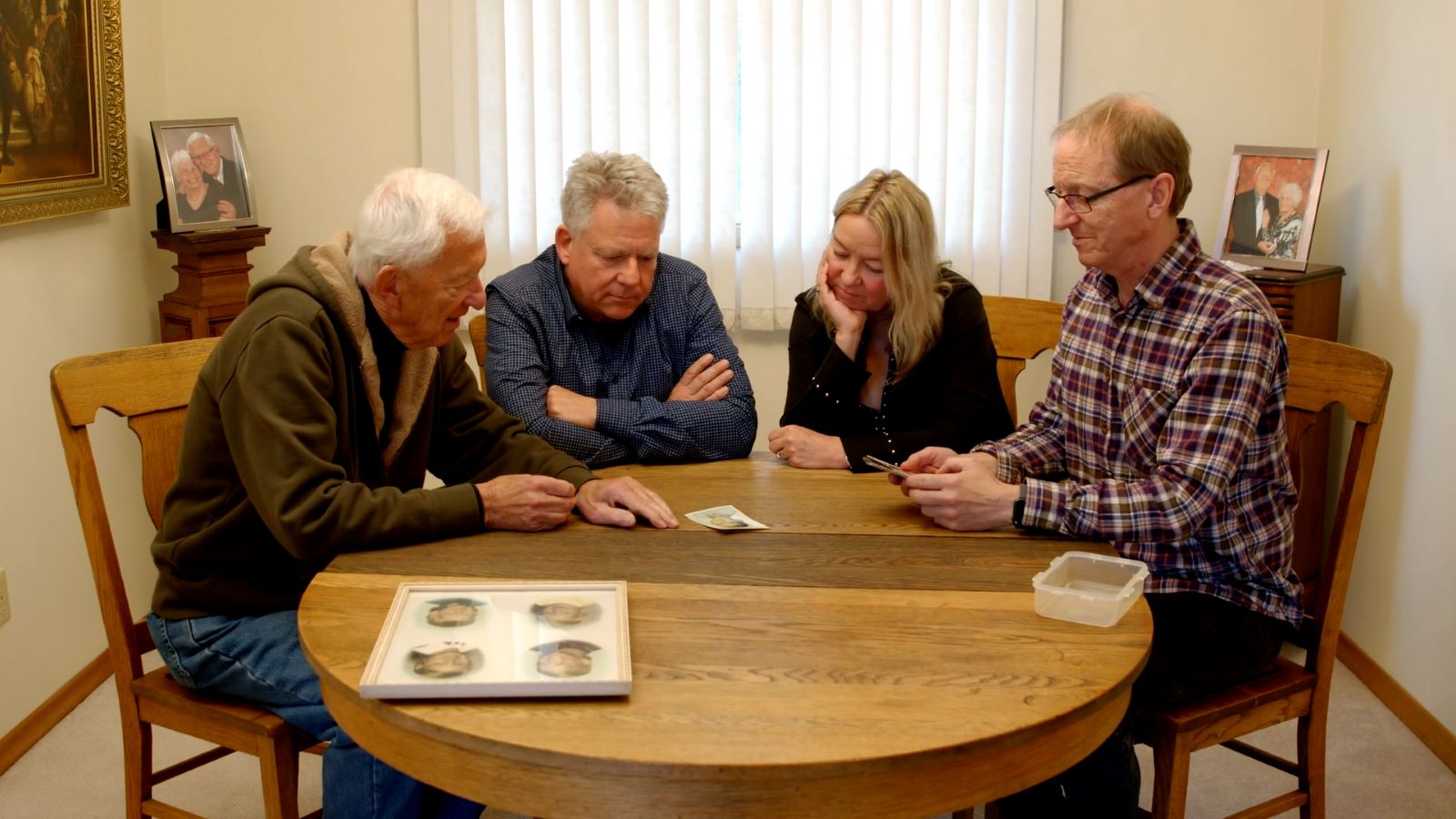One of the most frequent questions that POV’s team receives from readers after covering documentaries at Hot Docs is, “Where can I see the films?” Canada has few avenues outside the festival circuit to connect audiences with auteur documentaries, especially Canadian ones, but the Montreal-based Tënk aims to change that. The streamer, which originated in France but then expanded to Quebec before going bilingual in 2020, offers a curated platform for the kinds of documentaries that audiences encounter at festivals like Hot Docs, RIDM, DOXA, and other doc fests.

“We started Tënk because there was a need,” says Tënk co-director and artistic director Naomie Décarie-Daigneault in an interview during Hot Docs. “The rest of Canada has the same issues that Quebec has and they have same issue in France. The ecosystem was there to support the creation and funding for POV and auteur documentaries, but the movies just disappear.”
Tënk features 40 documentaries at any given moment with five new works appearing in the rotation weekly. In some cases, the docs are recent works fresh from the festival circuit, like the June releases Taming the Garden (a hit at Sundance and Hot Docs, never to be seen again), Hot Docs 2021 winner Ostrov – Lost Island, and the Canadian Screen Award nominated short The Benevolent by Sarah Baril Gaudet. In other cases, they might be cornerstone films, like Mike Hoolboom’s Frank’s Cock (1993), streaming throughout Pride Month, or Patricio Guzmán’s The Pearl Button (2015) before seeing his most recent release My Imaginary Country.
The platform also takes the pulse of emerging talents breaking. Recent collections highlight new voices in Canadian cinema, for example, with works by Antoine Bourges (Fail to Appear), Ryan Ermacora and Jessica Johnson (Labour/Leisure), Chase Joynt and Aisling Chin-Yee (No Ordinary Man), Nicolás Pereda (Tales of Two Who Dreamt), and Sophy Romvari (Still Processing). A special series on Ukraine, meanwhile, features the original Mariupolis after Mantas Kvedaravičius’s Mariupolis 2 was released posthumously last year. Tënk feeds curious cinephiles looking to expand their idea of documentary.
A Cinephile’s Approach
Décarie-Daigneault describes the process of building Tënk’s library as a shared journey in cinephilia. The last few years involved stakeholder meetings to unearth films worthy of a platform. “I talk with people to find the history of cinema—documentary, the rest of Canada and Quebec—and do archival/archeological work to find stories that weren’t seen,” says Décarie-Daigneault. “Sometimes, I found films in the basements of widows or discovered copies that we could digitize.”
Part of Tënk’s mission is to bridge the gap between the Two Solitudes and make Canadian films accessible to all Canadians. The streamer works extensively to digitize works, but also to translate and subtitle documentaries in both English and French as too few early docs are available in both official languages. Even some of Allan King’s works, including the landmarks Warrendale (1967) and A Married Couple (1969), were first made available with French subtitles in a spotlight on the king of actuality dramas on Tënk.
“We couldn’t believe that some major works were not available in French or English,” admits Tënk co-director and general manager Florence Lamothe. “We translated three films by Allan King and that means giving access to one of the greatest Canadian filmmakers to a part of Canada that could not access him before.”
In other cases, Tënk works with the National Film Board of Canada (NFB) to translate documentaries from their catalogue that aren’t available in both languages. Even though the Board has its own platform at NFB.ca, NFB docs often rank among Tënk’s more popular titles. “They’re some of the biggest names in documentary history in Canada and now there’s another place for people to discover these filmmakers,” adds Lamothe. “Seeing NFB films be popular on Tënk means that curation is necessary and that we have a meaningful way to reach viewers.”
Guiding through Curation
While the NFB’s excellent collection highlights films by subject and filmmaker, Tënk’s selective approach invites members to explore programmers’ taste. “We try to take people by hand and make them watch a movie,” says Décarie-Daigneault, “and not the contrary: to have movies that attract people.”
The Tënk team admits that they don’t watch the streaming numbers too closely and instead follow their hearts during curation. “We have five movies a week,” says Décarie-Daigneault. “Our way of seeing curation is that we fight for movies at the same intensity whether it’s a three-minute movie from the 1980s or a two-hour or five-hour movie from this year.”
Lamothe adds that viewership generally remains consistent with the flow of films. “There was no particular film that came up in the numbers. They seem pretty level,” she notes, which indicates that users generally do follow the curatorial direction.
But the curation might also be a perk for film buffs who share a “less is more” approach in a crowded market. With a tighter list of options, members don’t spend hours scrolling through the unnavigable hodgepodge of selections and thumbnails that populate the bigger streamer sites where choosing a film can take more time than watching one. “Hand-picked curation is different because we have only 40 documentaries available at all time for our subscribers,” says Décarie-Daigneault. “Sometimes I feel dizzy when there are so many titles. It’s the example of ‘fear of missing out’ [aka FOMO]. We are the antithesis of other streaming platforms. We have a more cinephilic approach.” Tënk’s complements its streaming options with essays, programming notes, links, and videos, much like MUBI, the platform to which it is most comparable in the market.
Building Community
Décarie-Daigneault and Lamothe note that roughly 40% of Tënk’s programming is Canadian, but they hope to bolster the market for auteur-driven documentaries by helping filmmakers secure a home at the funding stage. “Tënk was recently recognized as an official platform which was the first step to trigger funding for films,” notes Lamothe. “That’s a necessity in Canada. “
With producers required to have distributors or broadcasters on board to secure financing, the Canadian ecosystem generally leaves auteur-driven point-of-view documentaries behind outside the NFB. The broadcasters especially favour formula and talking heads documentaries. The few artists who do make auteur films generally fight for space in the festival circuit for their films to have a home.
“I did an interview with Sofia Bohdanowicz and she told me that her first movies had mostly no funding besides arts councils,” notes Décarie-Daigneault. “This, for me, is one of the most interesting voice now in Canada, and she doesn’t get much financing for doing her own thing in an artisanal way. There is a niche for singular and interesting voices that are emerging in Canada.” Three of Bohdanowicz’s films—Never Eat Alone (2016), Maison du bonheur (2017), and A Drownful Brilliance of Wings (2016)—found a home on Tënk.
Focusing on auteurs, rather than the formulas that populate other streamers—true crime series and celebrity docs, say—lets Tënk carve its space in streamerland. “We don’t start from the same understanding point as a documentary platform,” adds Lamothe. “People talk about how there are more and more documentaries, but there’s more than the formatted documentaries on other platforms. Sometimes we have to do some educating about the type of film we want to defend.”
“I don’t feel that Tënk is a niche,” adds Décarie-Daigneault. “It’s a centre for artists and artistic films, but the movies we defend are ones I could watch with my mother, my neighbour, or my friend. It just takes an engagement.”
So for audiences asking where they can see documentaries covered along the festival circuit, the answer is pretty easy: start with Tënk.











